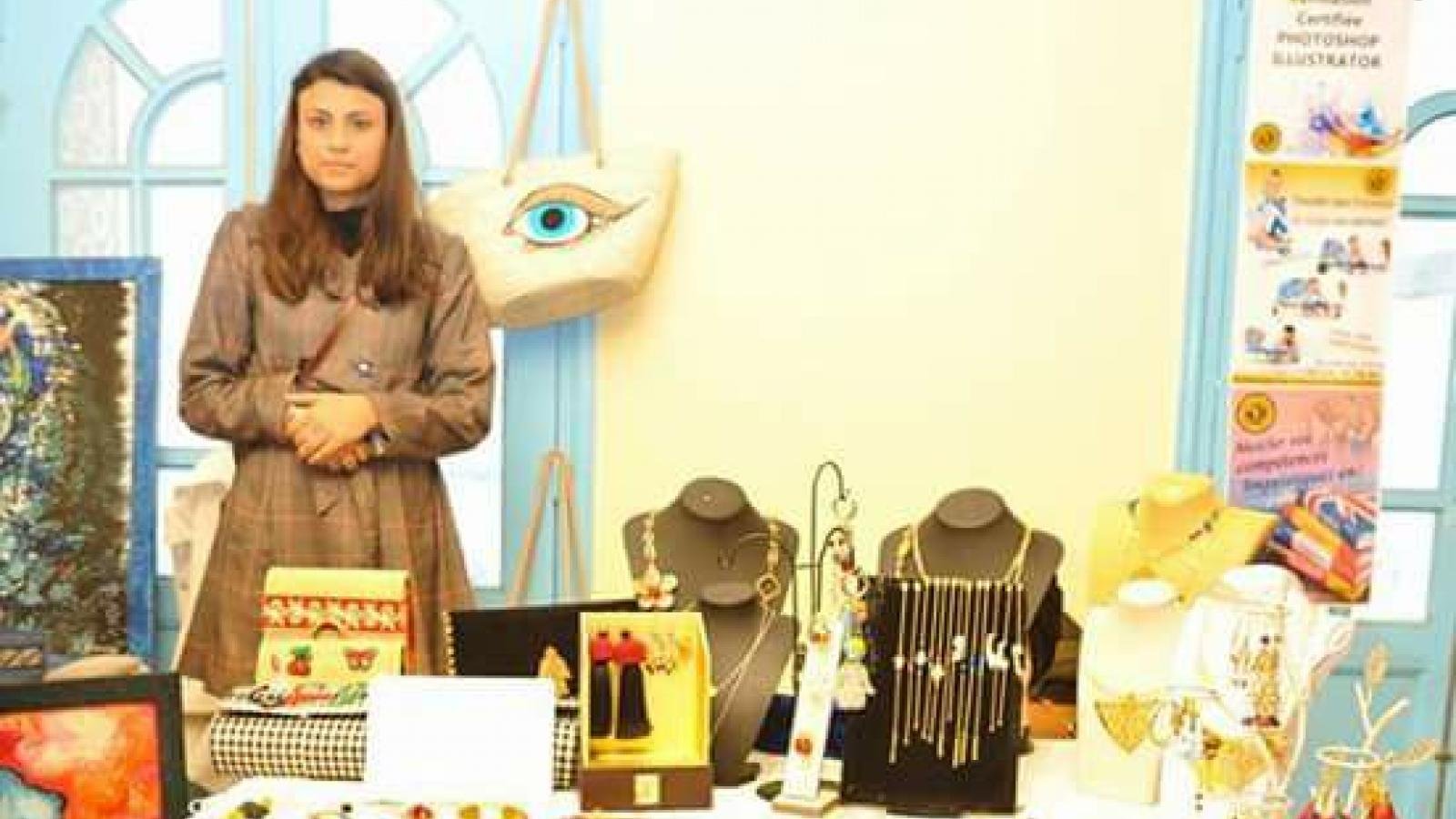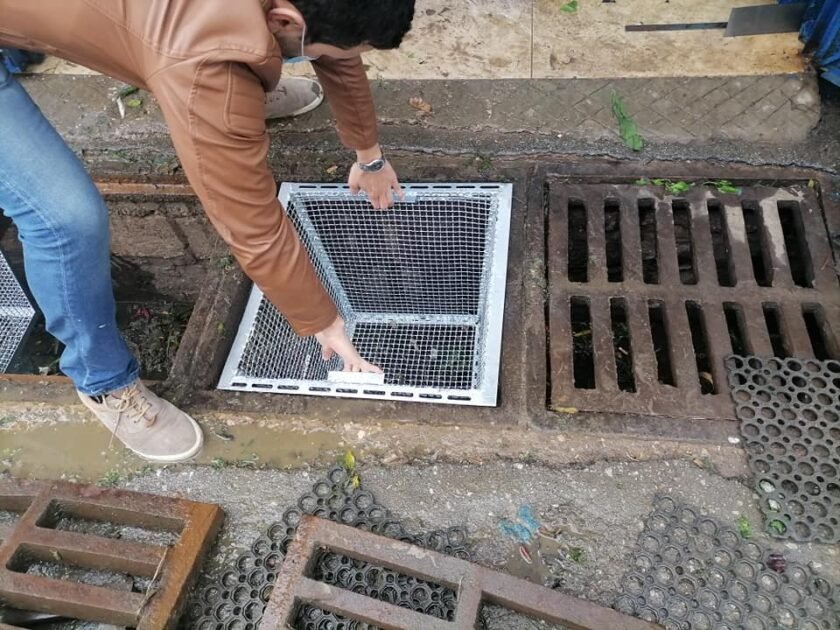From Tunisian pastries to carpets, to clothes and jewellery, the products combine elements of tradition and modernity.
Despite economic difficulties facing the handicraft sector, young Tunisian women artisans established an initiative to promote the industry and provide jobs for themselves and others.
The “I am Change” initiative encourages female artisans, many of whom are unemployed university graduates, to sell their work to a larger customer base and break into bigger markets.
From Tunisian pastries to carpets, to clothes and jewellery, the products these women make combine elements of tradition and modernity, resulting in a tapestry of products and colours crafted in fine detail.
Bahia Trabelsi, in her 30’s, sits with a multicoloured collection of traditional Tunisian bags, known as qoffa.
‘’I have been working in artisanal crafts for ten years and I even pursued a degree in arts and design,” said Trabelsi. “While it was a hobby from a young age, I only started becoming more and more interested in this during my studies. When I couldn’t find a job after I graduated, I started making these bags at home.”
Many female artisans have a similar story. Despite their skills and hard work, they often struggle to make ends meet with small-scale projects, the initiative’s organisers said.
“There are so many talented young women who are working on amazing products at home, whether it is artisanal or modern, but most of these women cannot open stores outside their houses,” said Chourouk Ben Jbara, one of the initiative’s organisers. “They lack funding and often struggle with marketing, so this initiative is part of promoting and encouraging these women to explore other ways.”
“Many of the young women working in this sector are either students or unemployed university graduates,” she added. “This is why the initiative aims to market their products to encourage them and to also function as a networking forum for these young, talented women to acquire more skills and learn from each other.”
Marwa Hosni, a participant in her 20s, makes customised paintings on fabric or objects from home. Lacking a job, she decided to explore using her passion for painting as a source of income.
“I have always been passionate about painting,” Hosni said. “After being unemployed for years,
I decided to learn the techniques of painting on fabric and trays. I participated in many fairs and my work was praised by many. I try to bring uniqueness to the paintings I draw or the trays I make as custom gifts and I try to explore the modern and traditional aspects of our cultural heritage.”
Najwa Baccar, another participant, creates jewellery in the traditional Tunisian style. One of her motivations, she said, was keeping Tunisia’s cultural heritage alive.
“Without our heritage, one cannot make any progress,” Baccar said. “There are so many beautiful traditions that are already fading. The jewellery I make, for instance, is inspired by the style that my grandmothers used to wear. It is inspired by the pieces they left for me. It took me years to learn the techniques and I always go to training.
I am glad I am doing this.”
Despite the passion the women have for handicrafts and artisanal products, many of them were discouraged by difficult economic conditions and a lack of opportunities.
“There are many talented women working in handicrafts but we are struggling with the fact we don’t have a budget to open our own stores,” Hosni said. “We are restricted to working from home, which does not allow us to expand our business. It is hard to achieve this with all the restrictions but it is important to keep this going.”
Baccar, who was an electronic technician before turning to jewellery making, echoed these concerns.
“As far as an amateur I am doing fine but I understand the struggles of people and women who want this to become their profession and to pursue a career,” Baccar said. “It is hard to market our products, to open your own store or workshop and it is an investment that is not always possible.”
Ben Jbara added that women often struggle to start their own projects but said training sessions and workshops can help hone their vision.
“The problem is that handicrafts and artisanal products are expensive, which makes it difficult to make a profit,” Ben Jbara explained. “Having unique ideas is the key to success since more and more people want to have different things than others.”
Maha Trabelsi, also an artisan, pointed to another problem: Gender inequality in the workplace.
“The merchants in the artisanal markets are all men but women are doing the job,” Trabelsi said. “Today with studies and marketing knowledge we are managing to work through the internet and the forums but we need more exposure.”
With hundreds of women participating in the initiative’s launch, female artisans hope to explore creative ways to improve the industry and monetise their work.
“This initiative is called ‘I am Change’ because we wanted to send a message that every Tunisian woman does not need the government to provide a living for her or have to wait for people to give her a job,” said Ben Jbara. “She can work on her own and innovate, which could be even better. We need to believe that we can change our society and that we can be the change that we aspire to have in the world.”




